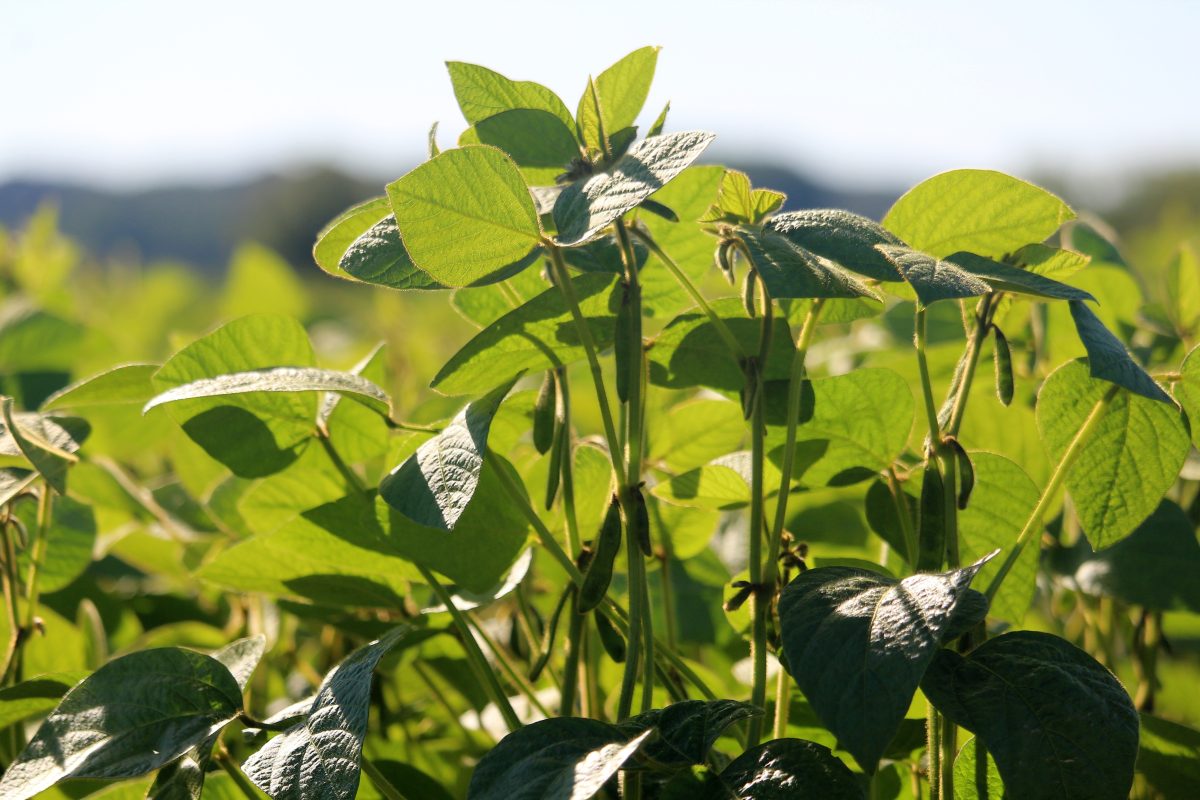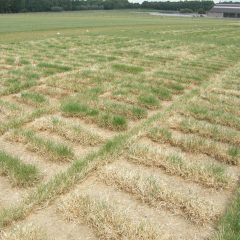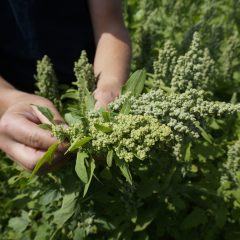Research project Optimisation of soybean-rhizobia combinations for cultivation in northwest Europe

General introduction
Soy is a crucial protein crop used in both food and animal feed, but is still hardly grown locally due to unsuitable varieties and cultivation techniques. Thanks to targeted breeding and crop optimization, major improvements have been made in recent years for soybean cultivation in north-western Europe. A further leap forward is the ‘MATCHMAKING’ of locally adapted soybean varieties with native, nitrogen-fixing rhizobium bacteria, ensuring stable, high-performing yields for profitable cultivation.
Research approach
In several field trials, we are looking for soy-rhizobia combinations that perform well and stably under varying weather conditions in our climate. The ILVO HYDRAS research setup (https://hydras.ilvo.be/nl/) is used to simulate and monitor drought, and ultimately identify the genetic factors that increase drought resistance. We also try to identify relevant genetic regions in the soybean genome for efficient nodulation and nitrogen fixation, and investigate gene expression by (meta)transcriptomics in the soybean nodules.
Relevance/Valorization
MATCHMAKING seeks to take a major step towards profitable soybean cultivation in northwest Europe. Finding an optimal combination of a soybean variety with the right rhizobium strain can give us a sustainable crop that requires much less (artificial) manure through its own N-fixation, reduces our dependence on other continents for protein-rich food and feeds, and provides an answer to environmental challenges such as the nitrogen problem.
Financing
FONDS VOOR WETENSCHAPPELIJK ONDERZOEK-VLAANDEREN – FWO










